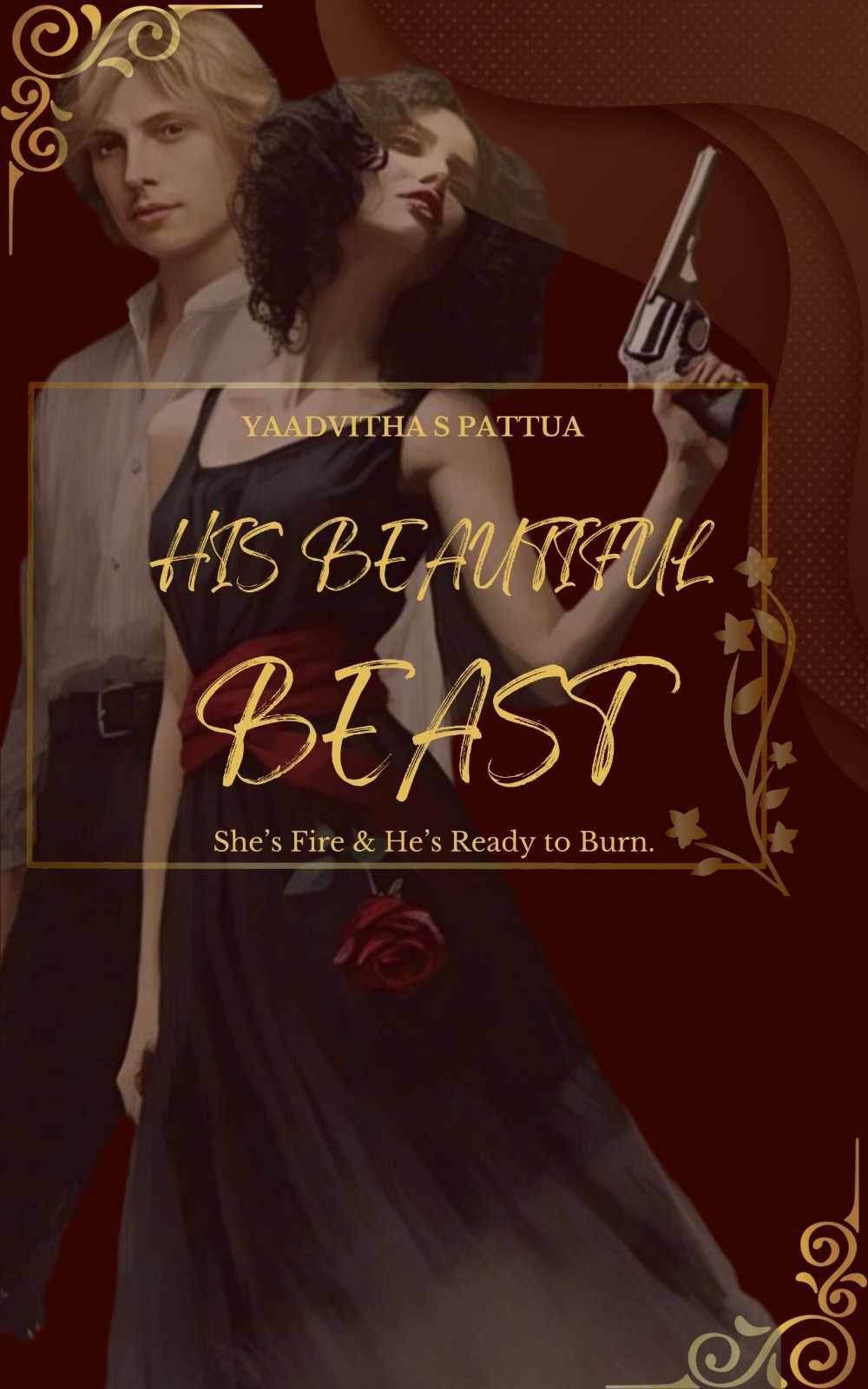The dining room of the Shetty residence glowed under the soft warmth of a chandelier that hung like an old secret. The table, solid teakwood polished to perfection, reflected the faint shimmer of glass serving bowls filled with steaming sambhar, rice and roasted papad. The room smelled faintly of sandalwood and coffee. Comfort and order masking a history of tension.
Sneha Shetty sat across from her father, watching him lower himself into his chair. He still moved like a soldier—controlled, cautious, every shift of weight deliberate. The slight limp in his gait hadn’t left him since Kargil, though he pretended it didn’t exist.
Even now, he checked the window angles, the door latch, the spacing between furniture—habits from a life lived between gunfire and orders.
Her father, Colonel Bharghav Shetty (Retd.), had traded the roar of battlefields for the quiet monotony of boardrooms, but the soldier never retired.
“The kiosks are all set along the MG Road stretch,” Sneha said, scrolling through her iPad with one hand and munching on a papad with the other. “Fizzolia’s team has volunteers in place. Trucks roll out by 5 a.m. Arcadia Circle, Cubbon Park, and Rajendra Junction are our focus points. We’ve doubled branding coverage there.”
Bharghav nodded slowly, wiping his glasses with the hem of his shirt. “Good. Visibility wins wars too,” he said, half-teasing, half-proud. “If people don’t remember the taste, they’ll remember the name.”
Sneha smiled faintly, her expression softening. “Exactly what I told them.”
The air shifted—tension rippling through calm.
A voice, sharp and clipped, cut across the table like a whip.
“I hope your marketing circus isn’t blocking the security zones.”
Roopa Shetty entered like a verdict—uniform pristine, medals gleaming even in the soft light. Morals buried long ago. Her boots clicked with authority, her posture screaming discipline and disdain in equal measure. She carried her rank like a crown and her ego like a weapon. Additional Director General of Police, Bangalore. A woman built from ambition and barbed wire.
“Warm the rasam,” she ordered without looking at anyone. “This is lukewarm.”
The maid scrambled into action. Bharghav gave his wife a weary glance, voice gentler than the anger it carried. “Roopa, sit. We’re almost done.”
She ignored him completely, setting her cap neatly on the empty chair next to her before fixing her gaze on her daughter. “You reminded the Commissioner to clear barricades near the temple routes?”
Sneha didn’t look up from her iPad. “Our kiosks don’t block the procession path. I coordinated with the authorities myself.”
Roopa’s lips curled. “How efficient. And here I thought all you knew was how to sell mango fizz.”
Sneha set her fork down. Slowly. Calmly. Her eyes met her mother’s. “At least I’m not selling my daughter.”
The words landed like a slap.
Bharghav froze halfway through reaching for water. The chandelier hummed softly above, as if the light itself had flinched.
Roopa raised an eyebrow, voice dangerously calm. “What are you talking about now?”
Sneha leaned back, crossing her arms. . “The Governor’s son. The guy you want me to marry. The one who’s been in and out of rehab and with three sexual assault charges you and your buddies buried.”
Roopa’s face didn’t flinch. “You’re thirty-two. Unmarried. Your market’s closing and that boy is the gateway to something bigger. You think stars get handed out for good behavior? The DGP post opens up in six months.”
“You’re trading me for a promotion.”
“I’m securing your future.”
“No, you're auctioning me for your ambition.”
Bharghav leaned forward, tone edged with quiet warning. “Roopa, that boy is filth. Sneha doesn’t need this. She’s made her own name. She’s independent. Don’t drag her into this game.”
She turned to him with venomous calm. “You raised her to be soft. Idealistic. That’s why she’s still wasting her time running a branding company instead of doing something with actual power.”
“She runs a company that employs 600 people,” Bharghav said, voice low. “She didn’t need a uniform to matter.”
Roopa scoffed. “Maybe if you'd been better at commanding your own career, you wouldn't have had to limp out of the battlefield and into retirement.”
The silence that followed was suffocating.
Bharghav didn’t move. Didn’t speak. Just looked down at his untouched food, his jaw tight. Sneha’s breath caught at the flicker of hurt on his face—barely there, but she saw it. She’d always seen it.
Her chair scraped the floor as she stood.
“I’d rather rot single than tie my life to a rapist for the sake of a star on your damn epaulettes.”
Roopa opened her mouth, but Sneha wasn’t done.
“And don’t you dare talk to Appa like that,” she snapped, voice rising with each word. “He bled for this country. He lost half his unit at Tololing while you were still flirting your way through bureaucratic ladders. He didn’t retire because he failed—he retired because he lived.”
Roopa’s eyes narrowed. “Watch your tone—”
“No,” Sneha shot back. “I’ve watched my tone for twenty-six years. I’ve watched you belittle him. Ignore him. Cheat on him with your rank and your power games. You’re not a wife—you’re a cold, ambitious machine with a badge.”
Bharghav’s head remained bowed, but his hands had stilled.
“And you’re no mother either,” Sneha continued, voice cracking now. “You never once asked what I wanted. You see me as currency—something to bargain away to gain your next title. You didn’t raise a daughter, you raised an asset.”
Roopa stood slowly, like a cobra preparing to strike. “You’re being emotional.”
“No. I’m being honest,” Sneha hissed. “For once in this family, someone needs to be.”
She turned to Bharghav, her voice softening just a little. “Appa, you don’t have to sit through this anymore.”
And with that, she walked out of the dining room. Her footsteps echoed up the stairs—sharp, unrelenting and then the sound of a door slamming upstairs split the silence.
Downstairs, Roopa exhaled, unbothered, and reached for her rasam again. “Dramatics,” she muttered.
Bharghav looked at her for a long moment. Then, quietly, he pushed his chair back, left his plate untouched, and walked toward his room without a word.
***
Peenya Industrial Yard — 3:00 A.M.
The Peenya Industrial Yard was wrapped in fog, a white shroud that dulled everything: the hum of machinery, the hiss of brakes, even the barks of stray dogs. Sodium streetlights flickered weakly above, painting the mist amber.
A battered Fizzolia truck rolled into Checkpoint 12, its exhaust coughing clouds of gray. The driver, bleary-eyed and underpaid, jumped down to sign the manifest, barely glancing at the guards. Two security men ambled forward, one yawning so wide his jaw popped.
From a parallel lane, three men stepped out of shadow, wearing fluorescent vests and company tags. But beneath the casual rhythm of their walk was precision.
Siddharth led, clipboard in hand, posture too straight for a PR rep. His face was calm, but his eyes missed nothing. Tejas followed with a dolly cart, one headphone in, humming under his breath like an overworked intern. Rafiq carried a crate with careful grace, too careful for a warehouse laborer.
One of the guards frowned. “Fizzolia PR again? I thought your guys cleared this stop hours ago.”
Siddharth’s voice was smooth, weary, perfectly corporate. “Mismatch in crate counts. PR’s having a meltdown. You know how these campaigns go.” He sighed for effect. “We’ll be quick. Five minutes.”
The guard shrugged. Bureaucracy was someone else’s problem.
The back of the truck swung open.
Rows of crates gleamed faintly under flashlights. Stickers on every base. Red, red, red—until Siddharth saw the first one without. Then another. Four in total.
“These are the ones,” he murmured.
Rafiq was already there, silent efficiency personified. He handed over the clean replacements—identical in weight and size. Siddharth swapped them with practiced ease.
Tejas stood at the truck’s rear, his cheerful façade unbroken as he blocked the guard’s view. “You know,” he said conversationally, “I tried the drink. Mango fizz. Not bad if you pretend it’s nostalgia and not sugar.”
The guard laughed. “You PR people, man. Sell anything.”
Tejas grinned. “Including myself sometimes.”
Inside, Siddharth tightened the final strap to the crate edges. The operation was silent choreography—every gesture measured, every glance a signal. When it was done, he gave the smallest nod.
They rolled the dolly back out, the bomb crates hidden beneath a stack of bright cardboard posters screaming:
“COOL THE HEAT — DRINK FIZZOLIA!”
Siddharth handed the clipboard back. “All set.”
The guard scrawled a signature, yawning again. “Done. Truck’s clear.”
The men walked away like they’d done this a thousand times before. No rush, no panic. Just tired workers finishing another long shift.
Behind them, the truck pulled off into the fog, carrying harmless crates now.
They loaded the swapped crates into an unmarked van parked under a flickering street lamp. The fog curled around the vehicle like smoke. Siddharth opened the door and froze.
A black envelope sat on the dashboard. A faint Trishul symbol glimmered in silver ink.
Ghost.
Siddharth peeled it free, careful not to smudge the mark. Inside, one folded sheet of grey paper. No signature, only the words:
“Kiosk 2. Keep Rahim close.”
His jaw tightened.
Tejas appeared beside him, breath clouding in the cold. “Anything?”
Siddharth folded the note, tucking it into his jacket. “We’re going in as Zaventra staff. Kiosk Two.”
Rafiq joined them, voice low. “And me?”
“You’re a tourist,” Siddharth said. “Blend in. Stick to route edges.”
Rafiq gave a dry smile. “Finally, a job with benefits.”
Tejas groaned. “I bet my benefit plan includes getting shot at.”
“Only if you talk too much,” Siddharth said.
Tejas grinned. “So basically… guaranteed.”
They fell quiet after that, the gravity settling between jokes. The night stretched heavy, the air thick with unspoken things. Somewhere far away, a temple bell rang—one chime marking the slow approach of dawn.
Siddharth’s gaze turned eastward. Soon, the city would wake to drums, colors, idols, laughter.
He adjusted his jacket, the ghost’s note safely tucked in his pocket.
“We keep it clean,” Siddharth said softly. “No mistakes.”
Tejas nodded, suddenly serious.
They stood there for a few seconds longer, the three of them framed by fog and sodium light.
Then they split into the darkness, each moving toward the fire that would burn by daylight. Each one moving toward the same explosion they were trying to prevent.
And somewhere, in the heart of Bangalore, Ghost was already waiting.


Write a comment ...